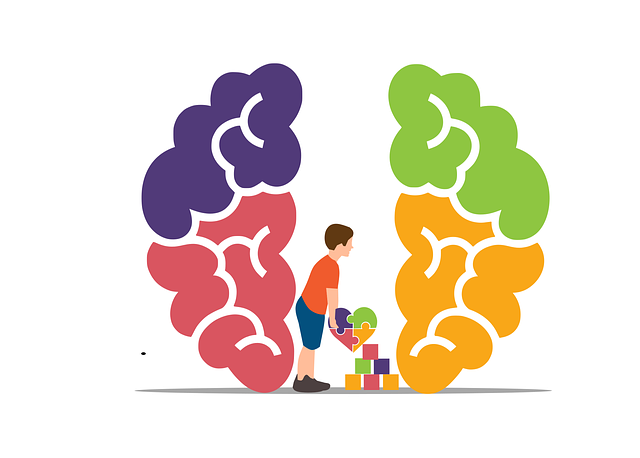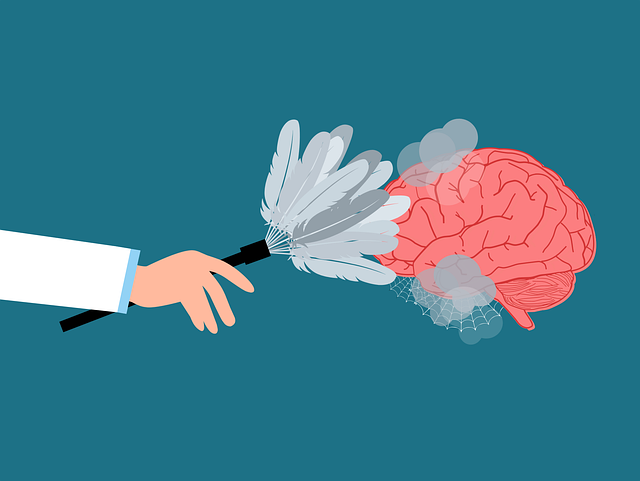Healthcare provider burnout among adolescents is driven by intense workload, trauma exposure, academic pressures, and lack of support. Grief counseling, tailored to address complex emotional needs of teens, builds resilience through coping skill development and empathy building. Implementing structured programs like stress management workshops, self-awareness exercises, and open communication channels creates a nurturing work environment that enhances well-being and reduces burnout among healthcare providers working with young people.
Healthcare provider burnout is a growing concern, impacting not just individuals but the entire healthcare system. This article explores comprehensive strategies to prevent burnout among healthcare providers, focusing on adolescent teens. We delve into understanding burnout’s subtle signs and its unique risk factors specific to this demographic. Key approaches include the integration of therapy for adolescent teens, specifically grief counseling, along with practical coping mechanisms and organizational changes to foster a supportive work environment.
- Understanding Burnout Among Healthcare Providers
- Identifying Risk Factors for Teen Burnout
- The Role of Grief Counseling in Prevention
- Implementing Effective Coping Strategies
- Creating a Supportive Work Environment
Understanding Burnout Among Healthcare Providers

Healthcare provider burnout is a growing concern, impacting not only individual practitioners’ well-being but also patient care and the overall healthcare system. It manifests as a state of emotional exhaustion, depersonalization, and reduced personal accomplishment, often driven by high workload, long hours, and challenging interactions with patients or colleagues. Among healthcare providers, adolescent teens may be particularly vulnerable due to the intense emotional demands and potential for exposure to traumatic events.
Grief counseling is one effective strategy to combat burnout, offering a safe space for professionals to process complex emotions, enhance coping skills development, and promote emotional intelligence. Additionally, incorporating stress reduction methods tailored to individual needs can mitigate the impact of work-related stressors. These practices support healthcare providers in cultivating resilience and maintaining a sense of purpose, ultimately contributing to improved patient outcomes and job satisfaction.
Identifying Risk Factors for Teen Burnout

Burnout among teen healthcare providers is a growing concern, and identifying risk factors early is key to prevention. Adolescent burnout often stems from various pressures unique to their developmental stage. These include academic demands, social media expectations, and peer dynamics. Many teens struggle with balancing schoolwork, extracurriculars, and social life, which can lead to increased stress and anxiety. In the healthcare setting, they may face additional challenges like heavy workloads, exposure to traumatic events, and high-pressure decision-making.
Risk factors for teen burnout include a lack of support systems, inadequate coping mechanisms, and insufficient access to mental health resources. Therapy for adolescent teens, such as grief counseling, can be instrumental in building resilience and healthy stress management strategies. Mental Health Education Programs Design focused on self-care routine development can empower teens to prioritize their well-being. Additionally, teaching conflict resolution techniques can help them navigate interpersonal challenges at work and school more effectively, reducing potential burnout triggers.
The Role of Grief Counseling in Prevention

In the context of burnout prevention strategies for healthcare providers, incorporating grief counseling as a therapeutic tool proves invaluable. The high-stress nature of their work can lead to profound emotional exhaustion and disengagement, which is why addressing underlying grief and trauma is crucial. Many healthcare professionals, especially those interacting with adolescents and teens, carry silent burdens from past experiences or personal losses, which unprocessed grief can manifest as chronic stress and burnout over time.
Grief counseling, tailored to the unique needs of this population, offers coping skills development and empathy building strategies. It provides a safe space for professionals to process their emotions, gain insights into their experiences, and learn healthy ways to manage stress. By integrating these therapeutic interventions into burnout prevention strategies, healthcare providers can enhance their resilience, improve patient care, and promote overall well-being.
Implementing Effective Coping Strategies

Healthcare providers, especially those working with adolescents and teens, often face unique challenges that can contribute to burnout. Implementing effective coping strategies is a vital step in prevention. This may include therapy sessions tailored for adolescent grief counseling, which has been shown to help young people process difficult emotions and build resilience. By addressing underlying stress and emotional issues, healthcare providers can enhance their ability to manage workload pressures.
In addition, structured programs such as stress management workshops and self-awareness exercises can significantly contribute to burnout prevention. These initiatives encourage professionals to prioritize mental health, fostering positive thinking and healthy coping mechanisms. Organizations should consider offering these resources not only to support staff but also to create a supportive culture that values well-being and encourages open discussions about stress and its management.
Creating a Supportive Work Environment

Creating a supportive work environment is paramount for healthcare providers’ well-being and can significantly mitigate burnout risks. This includes fostering an atmosphere that encourages open communication, respects boundaries, and values each individual’s unique contributions. Implementing regular team-building activities, providing access to mental health resources such as therapy for adolescent teens and grief counseling, and offering flexible work arrangements can enhance job satisfaction and reduce stress.
Additionally, incorporating self-awareness exercises, healthcare provider cultural competency training, and conflict resolution techniques into the work culture equips staff with essential tools for managing challenging situations effectively. These strategies not only promote personal growth but also strengthen interpersonal relationships within the team, leading to a more cohesive and supportive work environment overall.
Healthcare provider burnout is a pressing issue, particularly among adolescents. By understanding and identifying risk factors, implementing effective coping strategies, and fostering a supportive work environment, we can significantly prevent burnout. Grief counseling emerges as a powerful tool in this arsenal, offering therapeutic support for young healthcare providers navigating emotional challenges. Through these comprehensive approaches, including therapy for adolescent teens, we can create a more sustainable and resilient healthcare system.














